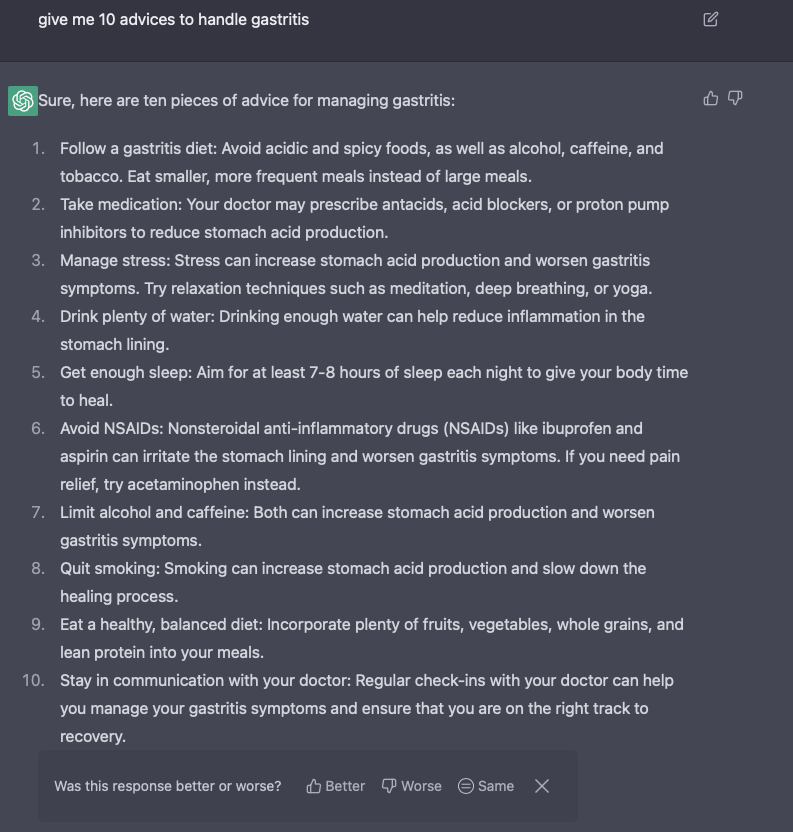Will Chat GPT ever be used to benefit patients?


Chat GPT, or artificial intelligence more generally, has shown us that technology is evolving rapidly; a phenomenon that will transform the way medicine is practised. With its machine learning and data analysis capabilities, AI is revolutionising the diagnosis, treatment and prevention of many diseases.
Let us now explore, how AI is changing the way healthcare provides patient care, highlighting 5 main benefits.
Speed and diagnostic accuracy
AI can analyse large amounts of medical data, including laboratory tests, diagnostic images and electronic medical records, to detect possible diseases and identify the best treatment strategy to be applied to the individual case.
In addition, it can identify clinical patterns and correlations that are not always easy to spot, where the collaboration of multiple medical specialities is required, enabling faster and more accurate diagnosis. For example, it can be used to identify abnormal images in X-rays, CT scans and MRI scans, allowing doctors to detect tumours or other diseases earlier, or it can help doctors distinguish between different types of diseases with similar symptoms, such as pneumonia and asthma.
The result is more effective treatment and a better prognosis for patients.
Personalising treatments
AI can analyse patient data to identify their specific needs and identify the best treatment for them. It can identify specific risk factors, predict the response to a drug and evaluate its effectiveness over time. For example, it can identify the most effective drug dosage and identify possible side effects.
In addition, AI can be used to identify patients who might benefit most from experimental or alternative treatments. This can help improve the quality of life of patients who have not responded well to conventional treatments.
Improving disease management
AI can be used to improve disease management by providing constant monitoring of patients’ health. It analyses patient data to detect changes in their health conditions and provides early warnings if conditions worsen. This can enable clinicians to intervene promptly to prevent complications and improve treatment outcomes.
It can help predict the risk of developing certain diseases, enabling doctors to take preventive measures before the disease occurs.
It can help manage chronic diseases by collecting patient data, preventing complications and promoting healthy lifestyles. For example, it can monitor the blood glucose level of diabetic patients, provide dietary recommendations and report possible complications or comorbidities. This can help patients maintain a better quality of life and avoid costly hospitalisation.
Reducing medical errors
AI can reduce medical errors, including those related to drug prescription and diagnosis. It can identify possible drug interactions or drug allergies in patients, thus preventing prescription errors. In addition, it can provide more accurate diagnostic support, helping to reduce diagnostic errors and improve patient safety.
Chat GTP and patients
We have already experienced this when the Dr.Google phenomenon was simultaneously an object of derision and concern for the medical profession in the early 2000s, yet today, it is the leading search engine where users search for medical information. It is easy to predict that with Chat GPT, the same will happen and thus many patients will flock to this technology to ask for medical information, to be reassured or to ask for more information when needed.
What information will be available on Chat GPT?
Let’s ask it directly:


However, it is important to emphasise that Artificial Intelligence cannot completely replace the experience and expertise of doctors and healthcare professionals. It represents a valuable support to their work, which can help improve their efficiency and accuracy in diagnosing and treating patients.
Ultimately, artificial intelligence represents an unprecedented opportunity to improve the healthcare provided to patients, and we expect its application to continue to grow and improve over time, making healthcare increasingly accessible and personalised for all.
